In the example I am following, there is a line that goes like this in the log4j configuration file:
<Console name="ConsoleAppender" target="SYSTEM_OUT" follow="true">
I understood everything in this line except for follow="true", I have read the description of this particular parameter on the official website: This Website. I also tried searching in other websites, but to no avail.
The description goes like this:

This description got me confused, What do they mean by "honors reassignments....." , what is its purpose, what happens if I change it to false.